
The Majestic Temple of Olympian Zeus: A Journey Through Ancient History
Explore the magnificent Temple of Olympian Zeus in Athens, a stunning historical site showcasing ancient Greek architectural brilliance and rich cultural heritage.
The Temple of Olympian Zeus, an iconic symbol of Athens, invites tourists to explore its grand ruins and rich history. Dating back to ancient Greece, this monumental site showcases impressive Corinthian columns and breathtaking views of the Acropolis, making it a must-visit for history enthusiasts and casual travelers alike.
A brief summary to Temple of Olympian Zeus
- Athens, GR
- +302109226330
- Visit website
Local tips
- Visit early in the morning or late afternoon to avoid crowds and enjoy cooler temperatures.
- Take your time to explore the surrounding park for added peace and beautiful photo opportunities.
- Combine your visit with a trip to the nearby Acropolis for a full day of historical exploration.
- Bring a camera to capture the stunning architecture and scenic views of the Acropolis in the background.
- Check for any special events or exhibitions that may be taking place at the temple during your visit.
Getting There
-
Walking
From the heart of Plaka, head southwest on Vasilissis Sofias Street. Continue straight until you reach the intersection with Amalias Avenue. Turn left onto Amalias Avenue, and you will see the Temple of Olympian Zeus ahead. The temple is located directly across from the National Garden, and you will spot its towering columns even from a distance.
-
Metro
If you prefer to take public transport, you can walk to the nearest Metro station, which is Syntagma Station. From there, take Line 3 (the blue line) towards Dimokratias. Get off at the next stop, which is Akropoli Station. Exit the station and head southeast on Dionysiou Areopagitou Street. Continue along this street, and after a few minutes of walking, you will arrive at the Temple of Olympian Zeus.
-
Bus
Alternatively, you can take the bus. Head to the nearest bus stop on Vasilissis Sofias Street. Look for bus numbers 550 or X95, which head towards Syntagma Square. Get off at the stop at Amalias Avenue and walk towards the Temple of Olympian Zeus, which will be a short distance ahead.
Discover more about Temple of Olympian Zeus
Iconic landmarks you can’t miss
Old Olive Tree
0.2 km
Witness a living symbol of Athens' ancient heritage, where mythology and history intertwine at the site of Athena's sacred gift.
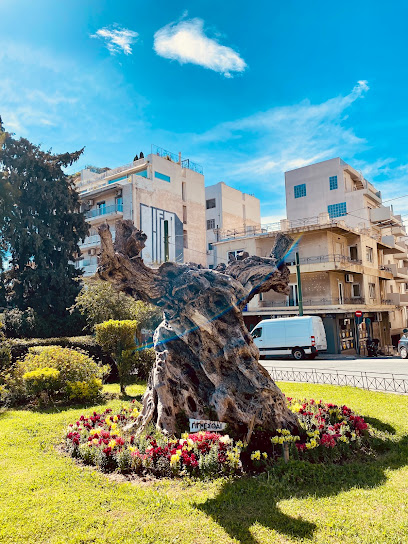
Estatua de lord Byron
0.2 km
A tribute to Lord Byron, the English poet and champion of Greek independence, located near Athens' National Garden.
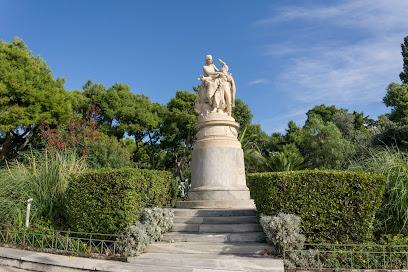
Equestrian Statue of Alexander the Great
0.2 km
A tribute to Alexander the Great, the statue captures the spirit of the legendary Macedonian king in the heart of Athens, Greece.
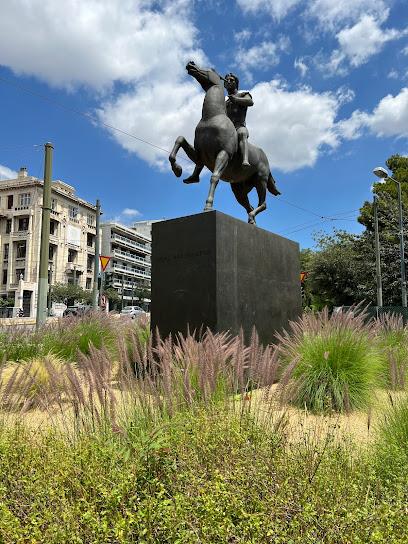
Bridge of Otto
0.2 km
Discover the historical charm of the Bridge of Otto in Athens, a neoclassical gem offering a serene escape and picturesque views.
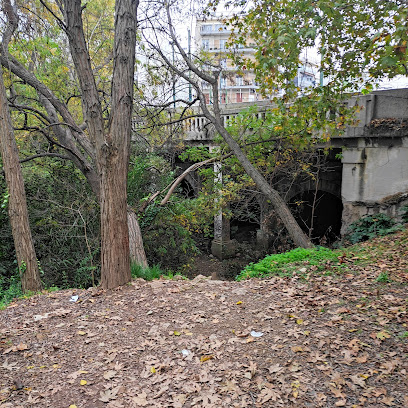
Roman Stoa
0.3 km
Explore the Roman Stoa in Athens: Where ancient commerce meets serene beauty in a historical landmark.
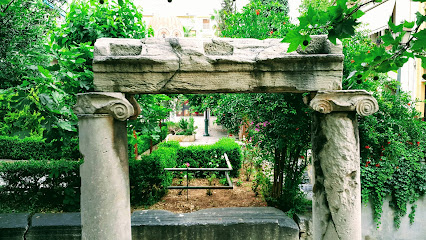
Konstantinos Zappas Statue
0.4 km
A marble tribute to Konstantinos Zappas, a Greek benefactor who helped revive the Olympic Games, located near the historic Zappeion Hall in Athens.
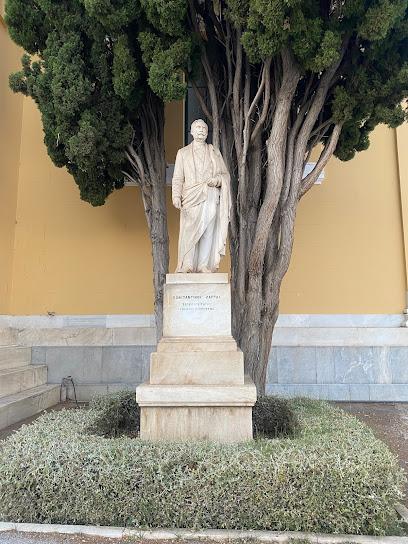
Holy Church of the Holy Trinity - Soteira Lykodemos (11th c.)
0.4 km
Discover the serene beauty and rich history of this 11th-century Byzantine church, a peaceful sanctuary in the heart of Athens.
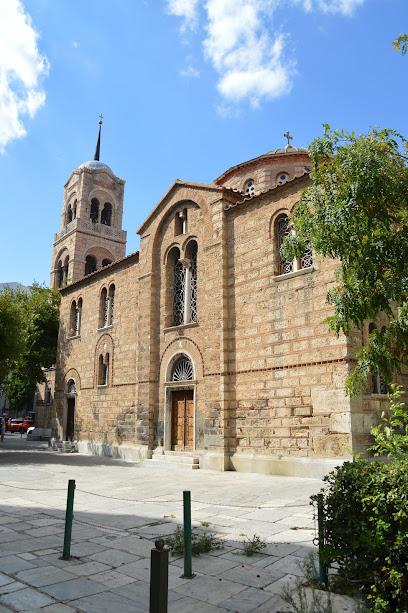
Greek Flag of Athens Acropolis
0.5 km
Witness the iconic Greek Flag atop the Acropolis, a symbol of Athenian history, pride, and breathtaking panoramic views of ancient and modern Athens.
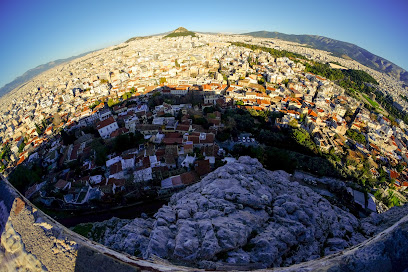
National Garden Roman Ruins
0.5 km
Discover ancient Roman remnants nestled within Athens' National Garden, a serene escape offering a unique blend of history and nature.
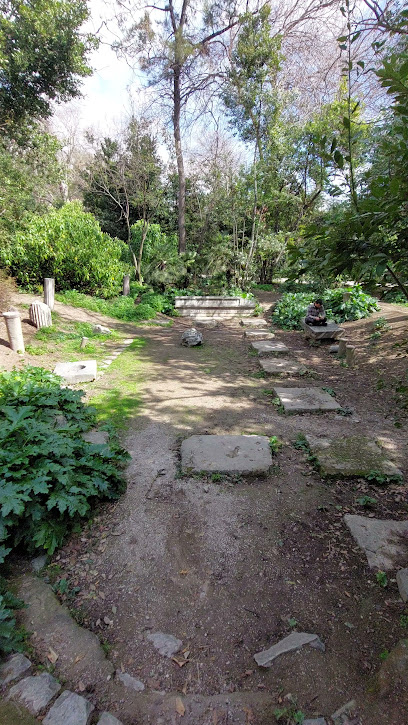
Statue
0.6 km
Discover the Statue of Athens, a captivating historical landmark showcasing the artistry and heritage of ancient Greece in the heart of the city.
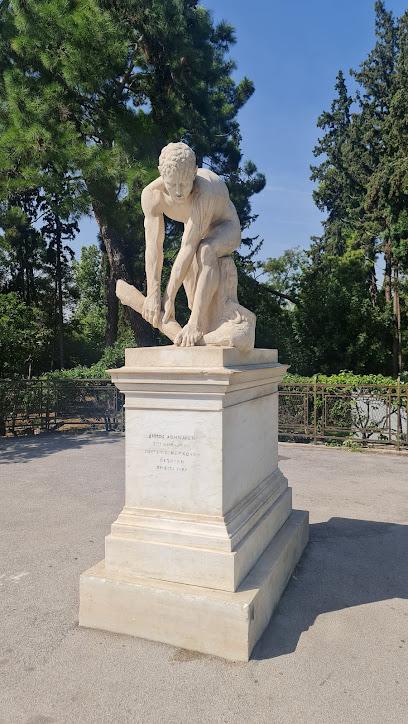
Statue of George Karaiskakis
0.6 km
Honoring a Greek War of Independence hero, this statue stands as a symbol of bravery and the fight for freedom in the heart of Athens.
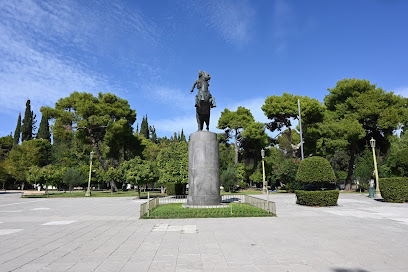
Temple of Athena-Tyche
0.6 km
Discover the ancient wonders of the Temple of Athena-Tyche, a historical landmark in Athens that showcases stunning architecture and rich cultural heritage.
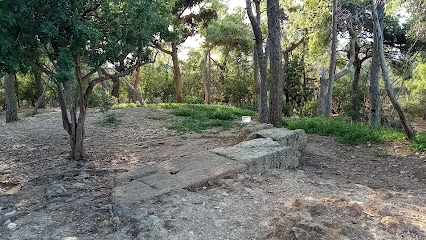
Stoa of Eumenes ΙΙ
0.6 km
Explore the ruins of this ancient covered walkway on the south slope of the Acropolis, once a gift from a king to the city of Athens.
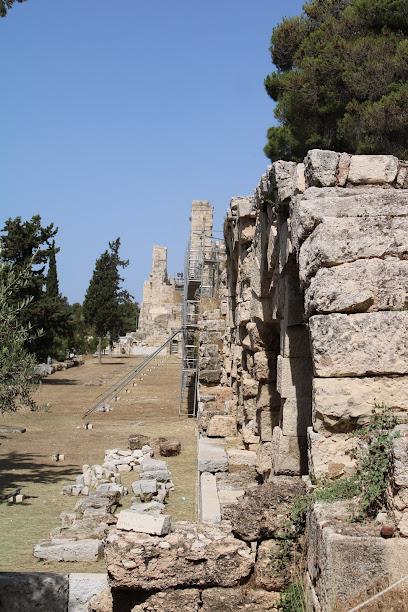
Temple of Themis
0.6 km
Discover the Temple of Themis in Athens, a historical monument dedicated to the Greek goddess of justice and divine order.
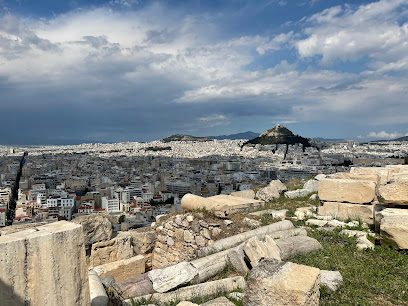
Benizelos Mansion
0.6 km
Explore Athens' oldest house, the Benizelos Mansion, a unique museum showcasing Ottoman-era architecture and the life of Saint Philothei.
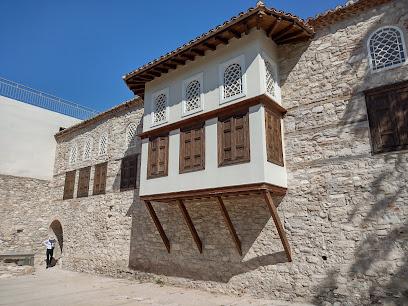
Unmissable attractions to see
Arch of Hadrian
0.1 km
Discover the Arch of Hadrian in Athens, a stunning historical landmark symbolizing the city's rich Roman heritage and architectural grandeur.
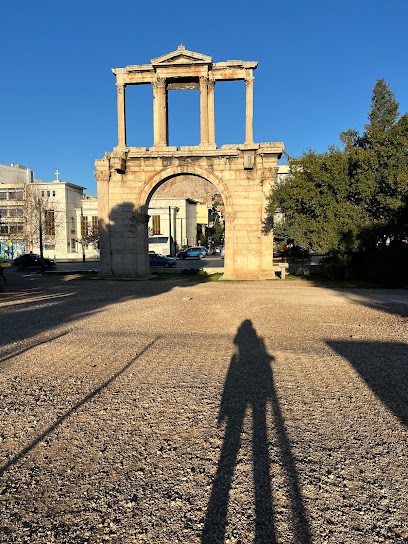
Melina Mercouri Monument
0.2 km
Explore the Melina Mercouri Monument in Athens: a captivating tribute to a cultural icon amid the vibrant heart of Greece.
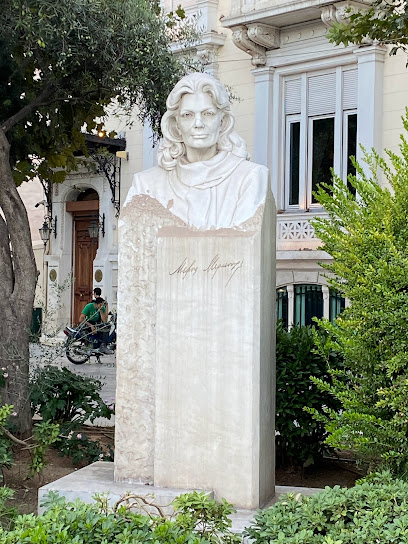
KeyTours Greece S.A
0.2 km
Explore Athens' rich history and vibrant culture with KeyTours Greece S.A., your go-to sightseeing tour agency for unforgettable experiences.
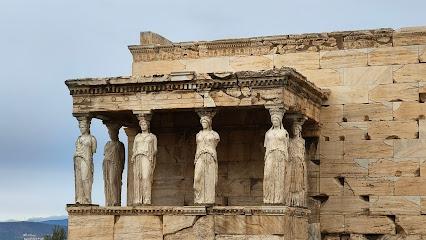
Metamorphosis
0.2 km
Explore Metamorphosis in Athens - a unique photo lab and museum that celebrates the art of photography through engaging exhibits and inspiring workshops.

Athens by bike
0.2 km
Discover Athens' rich history and vibrant culture on two wheels with Athens by Bike, your premier cycling tour operator in Greece's capital city.

Athens Walks
0.2 km
Explore the historic streets of Athens with Athens Walks, where guided tours bring the city's ancient history and vibrant culture to life.
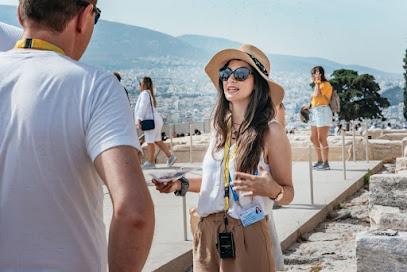
Zappeio Roman Baths
0.3 km
Explore the Zappeio Roman Baths, an archaeological gem in Athens showcasing ancient Roman architecture and cultural heritage amidst serene gardens.
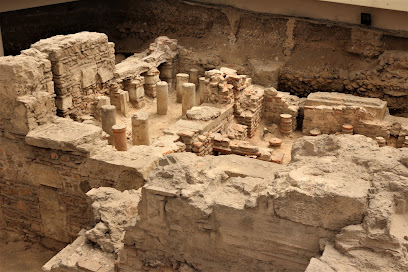
Third Ephorate Of Ancient Antiquities (Roman Bath)
0.3 km
Explore the ancient Roman Bath in Athens, a historical landmark that showcases the grandeur of ancient architecture and cultural significance.
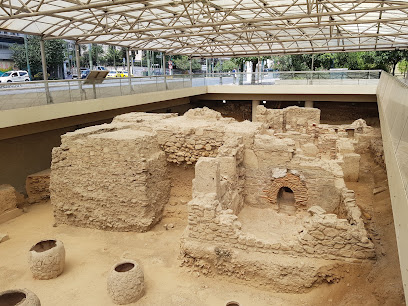
Athens Photo Tour
0.3 km
Discover the beauty of Athens through the lens with Athens Photo Tour, where iconic landmarks meet expert photography guidance.
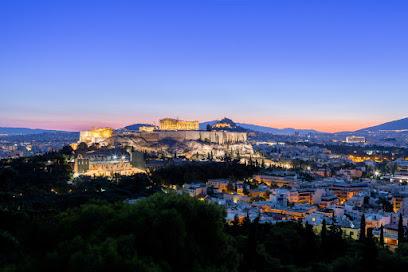
Temple of Artemis Agrotera
0.3 km
Explore the Temple of Artemis Agrotera in Athens—an ancient sanctuary showcasing Greece's architectural brilliance and rich cultural heritage.
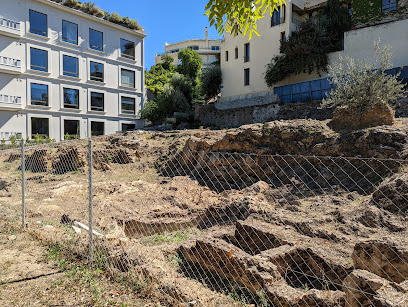
SOLEBIKE Athens eBike Guided Tours Travel Agency
0.3 km
Explore Athens like never before with SOLEBIKE's guided eBike tours, blending adventure, history, and culture in one unforgettable experience.

Epiculiar Athens - Meeting Point
0.3 km
Explore the heart of Athens with Epiculiar, your premier meeting point for unforgettable tours led by expert guides.
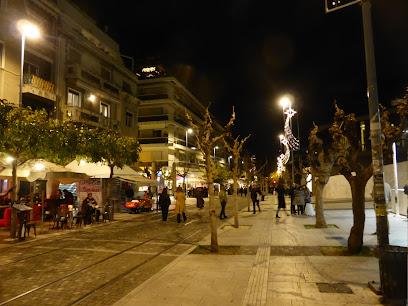
Tourist Information Center Athens
0.3 km
Explore Athens with confidence using the Tourist Information Center, your guide to the city's history, culture, and hidden gems.
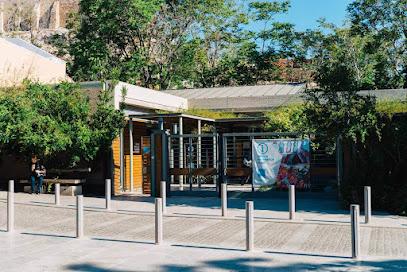
Frissiras Museum
0.3 km
Explore modern Greek art at the Frissiras Museum, a hidden treasure in Athens showcasing a diverse collection of contemporary masterpieces.
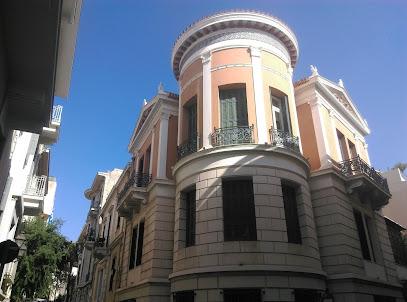
Choragic Monument of Lysicrates
0.3 km
Discover the beauty of the Choragic Monument of Lysicrates, an ancient Greek masterpiece blending history with the vibrant culture of Athens.
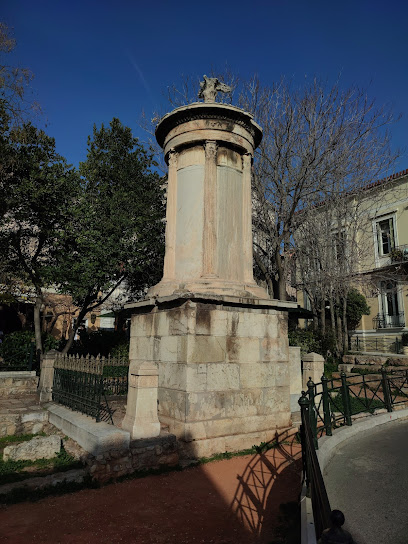
Essential places to dine
SENSE Rooftop Restaurant
0.2 km
Experience fine dining with stunning views at SENSE Rooftop Restaurant in Athens—where culinary excellence meets breathtaking scenery.
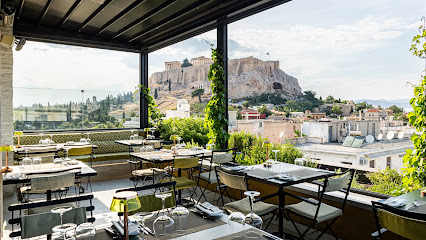
Daphne's Restaurant
0.3 km
Experience authentic Greek cuisine at Daphne's Restaurant in Athens - where every dish tells a story.

Pantheon
0.3 km
Experience authentic Greek flavors at Pantheon - where tradition meets innovation in every dish.

Trattoria
0.3 km
Experience authentic Greek cuisine at Trattoria in Athens - where tradition meets flavor in every dish.
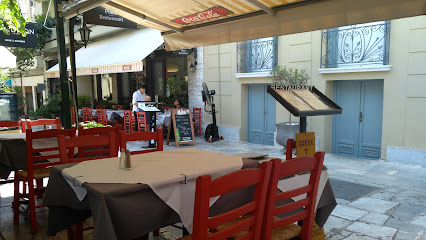
Ionos mediterraneon Greek Cuisine
0.3 km
Discover authentic Mediterranean flavors at Ionos Greek Cuisine in Athens—where every meal tells a story steeped in tradition.
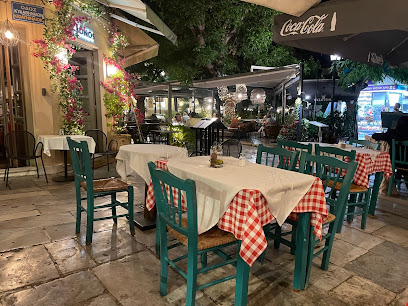
LIONDI Traditional Greek Restaurant
0.3 km
Discover authentic Greek flavors at LIONDI Traditional Greek Restaurant in Athens – where every dish tells a story.

Arcadia Restaurant
0.3 km
Savor the true flavors of Greece at Arcadia Restaurant – your destination for authentic Mediterranean dining in Athens.

Taverna Vyzantino
0.3 km
Discover authentic Greek flavors at Taverna Vyzantino in Athens – where tradition meets taste in every dish.
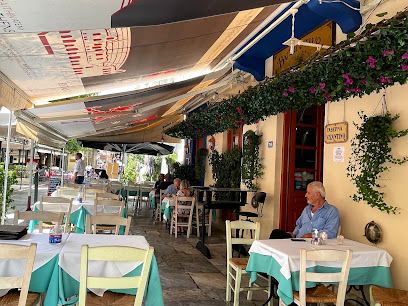
Taverna Saita
0.4 km
Experience authentic Greek flavors at Taverna Saita in Athens – where tradition meets taste.
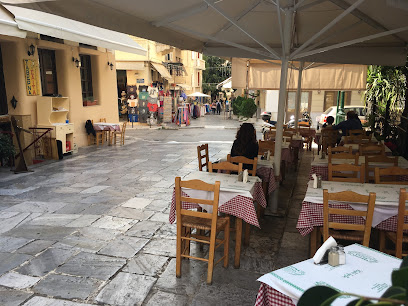
Kosmikon
0.4 km
Savor authentic Greek flavors at Kosmikon – a culinary gem in Athens showcasing Mediterranean delights.

To Kati Allo
0.4 km
Experience authentic Greek flavors at To Kati Allo in Athens – where tradition meets taste in every delightful dish.

ΑΝΕΤΟΝ
0.5 km
Discover the essence of Greek cuisine at ANETON – where tradition meets flavor in the heart of Athens.

To Kafeneio
0.5 km
Experience authentic Greek cuisine at To Kafeneio - where tradition meets flavor in the heart of Athens.
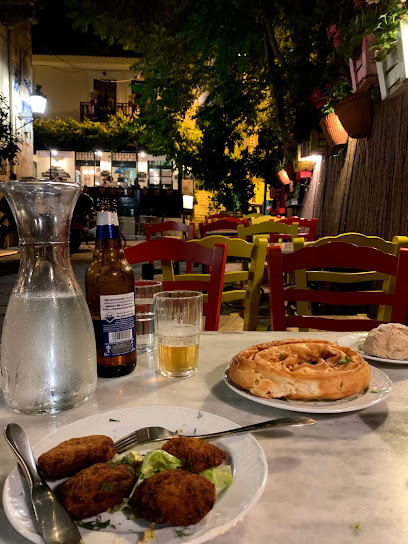
Restaurant Scholarhio
0.5 km
Experience the heart of Greece through exceptional flavors at Restaurant Scholarhio in Athens.
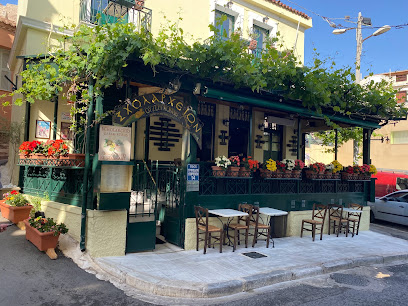
Mani Mani
0.5 km
Savor the essence of Greek cuisine at Mani Mani - where tradition meets innovation in every dish.

Markets, malls and hidden boutiques
Kirki's Eye
0.2 km
Explore Kirki's Eye, Athens' boutique clothing store, blending Greek tradition with modern style for a unique shopping experience.

Gallery Demeter
0.3 km
Explore Gallery Demeter in Athens for unique souvenirs that embody Greek culture and artistry, perfect for every traveler seeking authentic keepsakes.
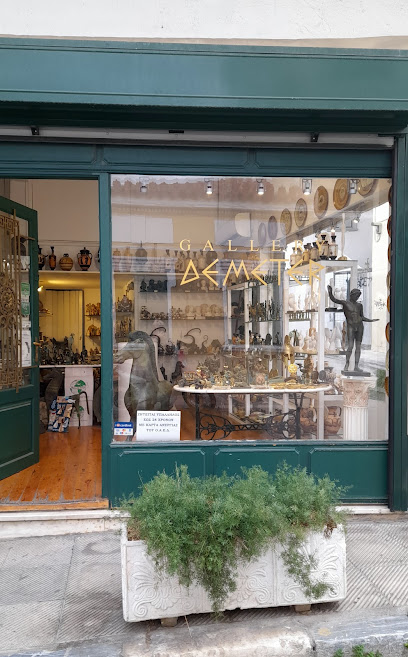
From Greece With Love Souvenirs
0.3 km
Discover authentic Greek souvenirs and clothing at From Greece With Love Souvenirs in Athens, a must-visit for cultural treasures.

NOSTALGIA GIFT SHOP
0.3 km
Discover unique souvenirs and artistic handicrafts at Nostalgia Gift Shop in Athens, where every item tells a story of Greece's rich heritage.

Roy's Shop - Greek Art & Souvenirs
0.3 km
Explore Roy's Shop in Athens for unique Greek art and souvenirs that embody the spirit of Greece, perfect for travelers seeking authentic keepsakes.

Leather Shop
0.3 km
Explore the Leather Shop in Athens for unique, handcrafted leather goods that embody Greek craftsmanship and culture.

Greco Souvenir
0.3 km
Explore Greco Souvenir in Athens for authentic handcrafted treasures, from jewelry to pottery, capturing the essence of Greek culture.

Articrafts Athens
0.4 km
Discover the heart of Greek craftsmanship at Articrafts Athens, where every handmade piece tells a unique story.
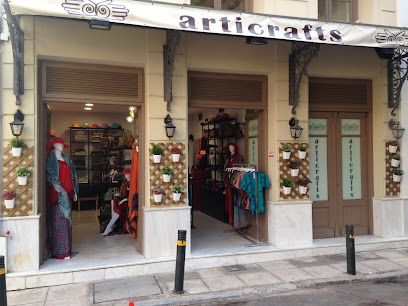
Museum Shop
0.4 km
Explore a treasure trove of unique souvenirs and cultural artifacts at the Museum Shop in Athens, reflecting the rich heritage of Greece.
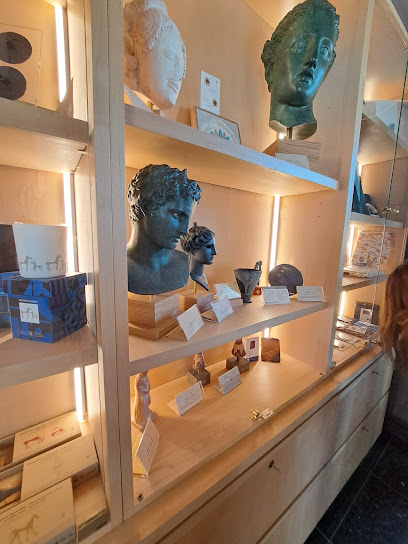
Potpourri Concept Store
0.4 km
Explore the Potpourri Concept Store in Athens for unique fashion accessories, perfumes, and creative supplies in a charming atmosphere.

Hercules Shop
0.4 km
Explore Hercules Shop in Athens for unique souvenirs, local crafts, and authentic Greek treasures that embody the rich culture of Greece.
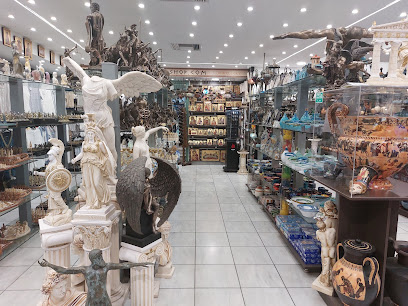
Dia Tauta Greek Design Gift Shop
0.5 km
Explore the vibrant Dia Tauta Gift Shop in Athens for unique Greek souvenirs and artisanal treasures that capture the spirit of Greece.

The Greek Shop
0.5 km
Discover the authentic flavors and beauty of Greece at The Greek Shop in Athens, your ultimate stop for local groceries and cosmetics.
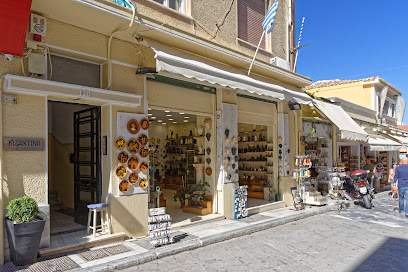
Thiki Greece
0.5 km
Discover authentic Greek souvenirs at Thiki Greece, where local culture and craftsmanship come together in the heart of Athens.
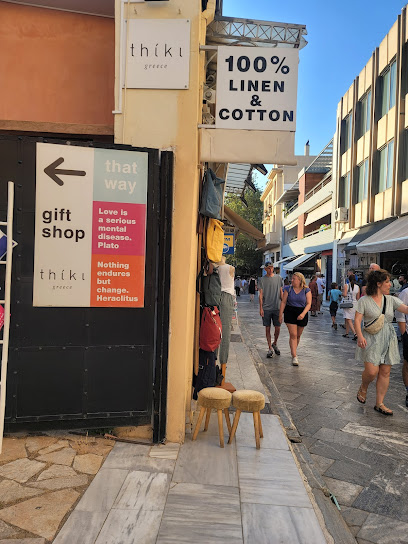
anastasia memories from athens
0.5 km
Discover unique Greek souvenirs at Anastasia Memories in Athens, where every item tells a story and enriches your travel experience.
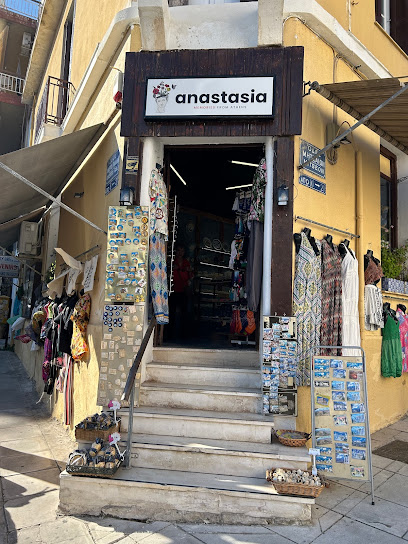
Essential bars & hidden hideouts
Jackass Penguin Gallery and Cocktail Bar
0.3 km
Discover the unique flavors of Greece at Jackass Penguin Gallery and Cocktail Bar, where culinary excellence meets vibrant local art.
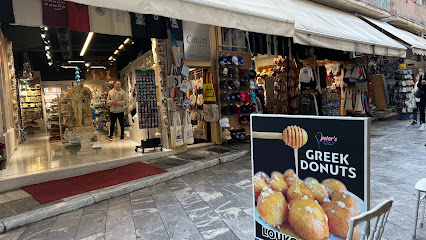
All Day Bar
0.3 km
Experience the vibrant nightlife of Athens at All Day Bar, where adult entertainment and a lively atmosphere come together for an unforgettable night.
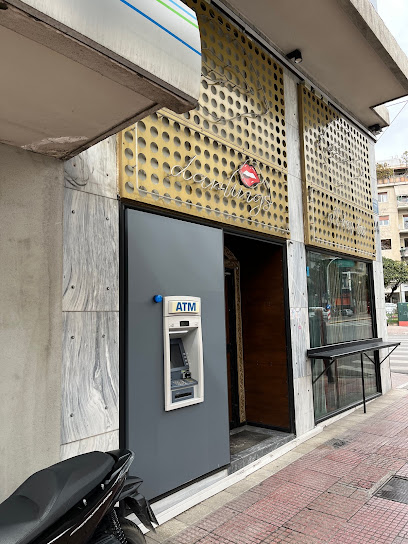
Brettos bar
0.3 km
Experience the rich tradition of Greek spirits at Brettos Bar in Plaka, Athens—where history and vibrant nightlife converge.

Licores
0.4 km
Experience the lively atmosphere and unique cocktails at Licores, one of Athens' top bars for nightlife and relaxation.

Tiki Bar Athens
0.5 km
Experience the vibrant atmosphere of Tiki Bar Athens, where tropical vibes and refreshing cocktails await in the heart of the city.

Athens Sports Bar
0.5 km
Athens Sports Bar: Your go-to destination for sports, karaoke, and a lively atmosphere in the heart of Athens.

Warehouse CO2
0.5 km
Experience the Finest Wines and Gourmet Delights at Warehouse CO2, Athens' Premier Wine Bar and Deli Offering a Cozy Atmosphere.

Drunky Goat
0.5 km
Experience the best of Athens' wine culture at Drunky Goat, where exquisite wines meet delicious tapas in a cozy atmosphere.

Plaka street
0.5 km
Discover the charm of Plaka Street, where vibrant bars meet historic Athenian culture, offering an unforgettable experience in the heart of Greece.
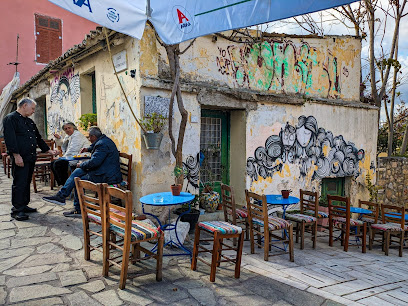
Loser Bar
0.5 km
Experience the vibrant nightlife of Athens at Loser Bar, where expertly crafted cocktails meet a lively atmosphere and unforgettable vibes.

Blue Bird
0.6 km
Experience the vibrant nightlife at Blue Bird, Athens' premier bar for cocktails, music, and unforgettable moments.

Kiki de grèce
0.6 km
Discover the essence of Greek viticulture at Kiki de Grèce, a must-visit wine bar in the heart of Athens.
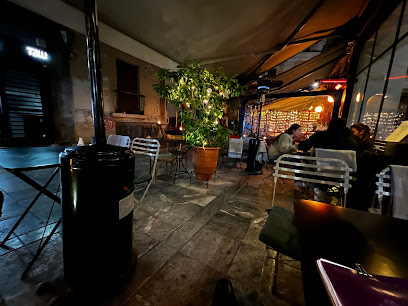
Ipitou The Bar
0.6 km
Discover the lively Ipitou The Bar in Athens, where craft beers and creative cocktails meet a vibrant atmosphere for unforgettable nights.

Thea Terrace
0.6 km
Discover the charm of Athens at Thea Terrace, where stunning views and delightful drinks create the perfect atmosphere for relaxation.
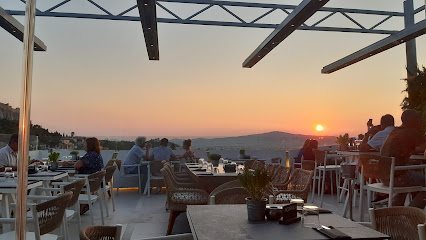
CHANDELIER
0.7 km
Discover the authentic flavors of Greece at Chandelier, a top grill restaurant in Athens, offering a vibrant atmosphere and mouthwatering dishes.
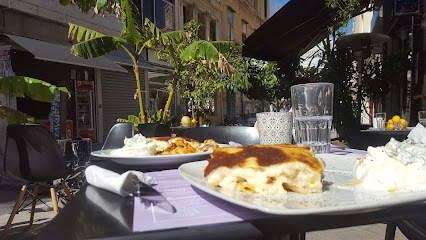
Nightclubs & after hour spots
Club 22
0.4 km
Dive into the electrifying nightlife at Club 22, Athens' premier destination for unforgettable partying and entertainment.

Half Note Jazz Club
0.5 km
Discover the heart of Athens' jazz scene at Half Note Jazz Club, where live music and vibrant atmosphere create unforgettable nights.

capu
0.8 km
Discover the excitement of Capu Night Club in Athens, where vibrant music and lively atmosphere create unforgettable nightlife experiences.

EKEI
0.9 km
Experience the electrifying nightlife at EKEI, Athens' premier night club with pulsating music and an unforgettable atmosphere.

Toyroom Athens
1.0 km
Experience the electrifying vibe of Toyroom Athens, a premier disco club in the heart of the city, where unforgettable nights come alive.

Like
1.1 km
Discover the electrifying nightlife of Athens at Like Night Club, where dancing and music create unforgettable experiences in a stylish setting.

Clown Dogs Night Club
1.1 km
Discover the electrifying vibe of Clown Dogs Night Club in Athens, where the dance floor comes alive with music and energy, perfect for every night owl.

Koukles Club Drag Queen Show
1.1 km
Experience the dazzling drag shows and vibrant nightlife at Koukles Club, Athens' premier disco destination for unforgettable entertainment.

7 Times Dance Club & Shisha Lounge
1.1 km
Discover the energetic vibe of Athens at 7 Times Dance Club & Shisha Lounge, where dancing meets relaxation in a vibrant atmosphere.

Greek Music Venue
1.2 km
Discover Athens' vibrant rock music scene at the Greek Music Venue, where live performances and a lively atmosphere create unforgettable moments.
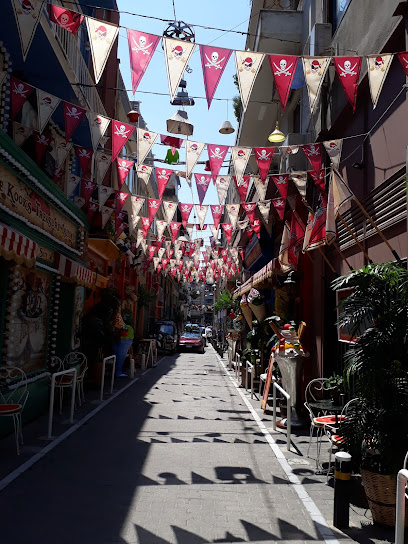
Ruby Club
1.3 km
Unleash your wild side at Ruby Club, a premier night club in Athens, where unforgettable nights filled with music, dancing, and vibrant energy await.
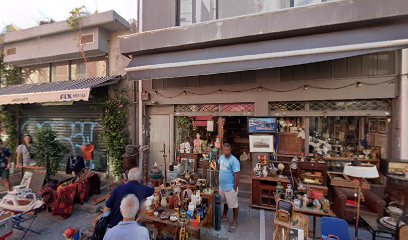
Teddy Boy
1.3 km
Discover the energetic vibe of Teddy Boy, a must-visit bar in Athens known for its creative cocktails and lively atmosphere.
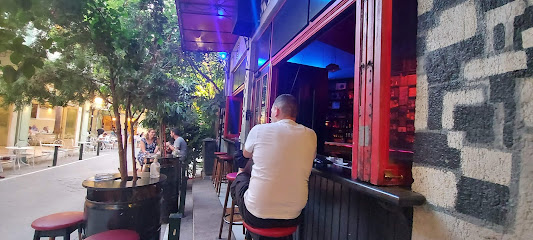
Cantina Social
1.3 km
Experience the vibrant nightlife of Athens at Cantina Social, where delicious cocktails and lively music create unforgettable moments.

Nomads Athens
1.3 km
Discover the lively nightlife of Athens at Nomads, a vibrant bar and live music venue offering a great selection of beers and unforgettable performances.

Karaoke bar
1.4 km
Experience the lively nightlife of Athens at a top-rated karaoke bar, where music and fun collide in an unforgettable atmosphere.




